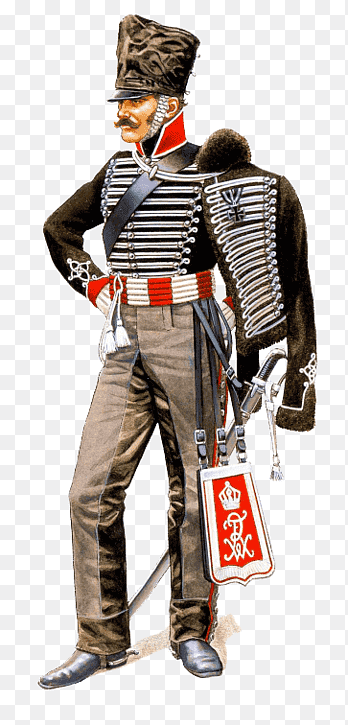The Last Lesson Summary CBSE Class 12 English with NCERT Solutions For Class 12 for revision and better performance in tests and exams. Study Equation also provides Notes and Lesson Plan. Our Study Rankers specially made them for better understanding. Students may read the NCERT The Last Lesson PDF and the last lesson conclusion to practice concepts with NCERT Solutions and Extra Questions and Answers. The author, Alphonse Daudet, portrays the most basic form of patriotism and love for their own’s mother tongue through this chapter. Below you can find the last lesson summary of the lesson and NCERT Question Answers.
Read more: The Interview Summary Class 12 English
Table of Contents
The Last Lesson Summary Of Class 12
The Last Lesson Short Summary Class 12 English , This story, The Last Lesson, written by Alphonse Daudet, portrays the most basic form of patriotism and love for their own’s mother tongue through this chapter. It teaches you to express your freedom of speech and language.
Characters in Spotlight: The Last Lesson
- Franz
- He is a french boy.
- Franz likes to play and fears school.
- He does not like studying French.
- Franz detests his french teacher, M. Hamel
- M. Hamel
- He was a true french man and patriotic.
- M. Hamel was an honest teacher.
- He was a dedicated man as he taught in the school for 40 years.
- Although, he was also a strict teacher, and his students were terrified of him.
- M. Hamel was an emotional man.
Quick Overview : The Last Lesson

In the last lesson conclusion, you must know that the prose is about the year 1870 when the Prussian forces had attacked and captured France. Learn more about The Prussian Army The Prussian rulers banned on the teaching of French language. They asked the French teachers to leave. Through the eyes of Franz, the writer portrays the changes he sees in the school on the last day of M. Hamel’s duty and the feelings and emotions of a patriotic french teacher.
The Last Lesson Summary
Franz dislikes going to school and today, he is fearful of attending school because he is running late. On top of that, he has not learnt the lesson on participle. His french teacher, M. Hamel, is a strict teacher and students are terrified of him. Therefore, Franz is afraid that he might get a scolding.

On his way, Franz plans to run away and spend the day outside. He thought of this because the day was warm and bright. He planned to listen to the chirping of the birds and enjoy himself. Franz was willing to watch the drilling of Prussian soldiers. But, Nonetheless, he overcame his desires and continues his walk to school.
He passes through the Town Hall and sees the huge crowd around the Notice board. He decides to not stop as the Bulletin board always served bad news like lost battles, the drafts, and orders of the commanding officers.

Generally, there was a hustle and bustle at school. The classroom was filled with the noise of the opening and closing of desks. The students would be repeating the lesson in unison. But, today, on reaching the school, he noticed some changes.
Some of these included:
- Everything was as silent as Sunday morning.
- M. Hamel was dressed in an occasional dress.
- His classmates were already seated in their respected places.
- He noticed elderly villagers occupying the last benches.
- M. Hamel was kind to let him the classroom instead of scolding him.
- The school oozed seriousness.
M. Hamel demanded full attention. He announced the notice which was served from Berlin. It said that from tomorrow onwards German would be taught in the schools of Alsace and Lorraine. Franz realized that this is what was put up on the bulletin board. M. Hamel told his students that this was their last French lesson. Franz was pained at the thought of his teacher going away. He regretted not paying attention to his previous lessons.

Also find summary of Class 12 English Going Places
Franz is now able to make out why the teacher is dressed in his occasional dress. As a mark of respect for the country, the villagers are sitted at the back. They are here to thanks the master for his 40 years of service
M. Hamel’s view is that all three: the children, the parents, and he, himself are to be blamed for the lack of learning. He mentions that parents are ignorant who are not willing to send their children to learn. Moreover, children prefer to work in mills and farms. He also blames himself for sending students to run errands.
For his last lesson,
Hamel calls the french language the most beautiful language. He wishes to teach them everything in one go. Franz is called to recite the grammar lesson but he makes mistakes. He expects to get scold but the master does not scold him. Instead, he suggests that one should not waste time. M. Hamel teaches his pupils to always keep the mother tongue close to their hearts as it is the key to the prison of slavery.
While teaching his last lesson, tears roll down from the eyes of his students and even the villagers. Everyone is emotional but Hamel is courageous to be teaching his lesson bravely and without breaking down.
Once the church clock strikes twelve, trumpets of the Prussian soldiers start to sound. Before dismissing the class by his usual gesture, M. Hamel writes ‘vive la France’ on the board. It means ‘Long Live France’. This message portrays the patriotism and the spirit of a true french man that was embedded in M. Hamel.

Conclusion Of Last Lesson Class 12
The above written includes the Class 12 English The Last Lesson Summary, the last lesson conclusion, explanation, and question answers. Browse our site for various detailed and easy NCERT Solutions and CBSE Notes and Comprehensive Summary.
Frequently Asked Questions
Q. 1. What does The Last Lesson convey to the reader?
A) Alphonse Daudet wishes to convey to his readers the importance of remaining loyal and proud of their nation and mother language.
Q. 2. What value does the story the last lesson teach us ?
A) This lesson offers us two extremely crucial life lessons. First, a person should be familiar with his language and culture, and second, he should never neglect his task.
Q. 3. Is the last lesson a true story?
A) Although ‘The Last Lesson’ is a work of fiction, it is based on true events in Alsace during the Franco-Prussian War. Consider how the conflict has affected the lives of ordinary people in this community.
Q.4. What was the impact of The Last Lesson?
A) M. Hamel, the instructor, discussed the value of a language in people’s lives in The Last Lesson. He implied that a common language always keeps the populace together.
Q.5. What is the background of the story The Last Lesson?
A) In the Last Lesson summary, the author describes what happened in 1870 when Bismarck’s Prussian soldiers seized France.
Q.6. Why was Franz afraid of?
A) That particular day, Franz was particularly worried about getting in trouble.





